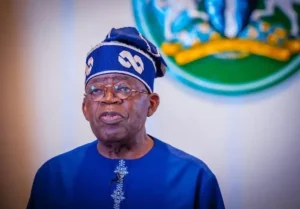President Bola Ahmed Tinubu has signed the Nigeria Police Training Institutions (Establishment) Bill 2024 into law, marking a major milestone in the professionalisation of the Nigeria Police Force.
The new legislation provides statutory recognition for 48 police training institutions spread across the country.
The Act, sponsored by Senator Ahmed Abdulhamid Malam-Madori, is expected to transform police education, enhance professional development, and align Nigeria’s law enforcement practices with international standards.
According to the provisions of the law, the nation’s police training infrastructure will now operate under five major categories Police Colleges, Police Training Schools, Police Tactical Schools, Police Technical Training Schools, and other specialised institutions all strategically distributed across the six geopolitical zones.
Among the top institutions formally recognised by law are the Police Colleges in Ikeja (Lagos), Kaduna, Maiduguri, and Oji River, as well as the Police Staff College in Jos and the Police Detective College in Enugu.
In addition, several Police Training Schools in Bauchi, Sokoto, Benin, Ilorin, Calabar, Ibadan, and other states have been listed under the new Act, reinforcing the government’s commitment to capacity building and effective policing.
Furthermore, elite tactical institutions such as the Mobile Training Schools in Gwoza, Ila-Orangun, and Ende-Hill, along with Counter Terrorism and Special Protection Unit schools, will now operate under a unified legal framework.

These centres are expected to improve the preparedness of officers to respond to complex security challenges across the country.
Senator Malam-Madori described the presidential assent as “a transformative moment in Nigeria’s internal security architecture,” adding that the Act would “professionalise police training, deepen research in security management, and align Nigeria’s policing culture with international standards.”
Under the new framework, technical and specialised institutions such as the Police Public Relations School in Lafia, the National Institute of Police Studies in Abuja, and the Police Institute of Digital Studies and Cyber Security in Abeokuta have also been given legal status.
Moreover, the law recognises the importance of emerging skills in modern policing, including digital intelligence, cybersecurity, and communication.
These additions, according to experts, position the Nigeria Police Force to better tackle 21st-century security threats.
Security analysts have praised the Nigeria Police Training Institutions Bill 2024 as one of the most comprehensive police reform laws in the country’s history.













